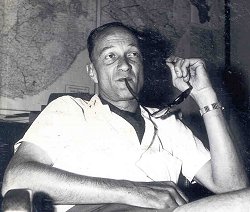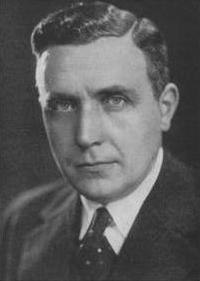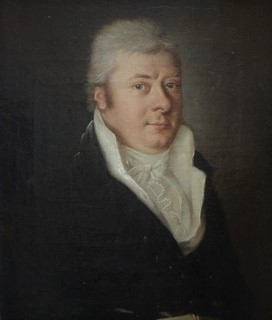
The foreign policy of the Netherlands is based on four basic commitments: to the Atlantic cooperation, to European integration, to international development and to international law. While historically the Kingdom of the Netherlands was a neutral state, since 1945 it has become a member of NATO, the United Nations, the European Union and many other international organizations. The Dutch economy is very open and relies on international trade. During and after the 17th century—its Golden Age—the Dutch built up a commercial and colonial empire. It was a leading shipping and naval power and was often at war with England, its main rival. Its main colonial holding was Indonesia, which fought for and achieved independence after 1945. The historical ties inherited from its colonial past still influence the foreign relations of the Netherlands. Foreign trade policy is handled by the European Union. The Dutch have been active in international peacekeeping roles.

The economy of the Netherlands is the 17th largest in the world in 2021 according to the World Bank and the International Monetary Fund. Its GDP per capita was estimated at $72,973 in the fiscal year 2023, which makes it one of the highest-earning nations in the world.
The Dutch Reformed Church was the largest Christian denomination in the Netherlands from the onset of the Protestant Reformation in the 16th century until 1930. It was the original denomination of the Dutch Royal Family and the foremost Protestant denomination until 2004. It was the larger of the two major Reformed denominations, after the Reformed Churches in the Netherlands was founded in 1892. It spread to the United States, South Africa, Indonesia, Sri Lanka, Brazil, and various other world regions through Dutch colonization. Allegiance to the Dutch Reformed Church was a common feature among Dutch immigrant communities around the world and became a crucial part of Afrikaner nationalism in South Africa.

Nedbank Group is a financial services group in South Africa offering wholesale and retail banking services as well as insurance, asset management, and wealth management. Nedbank Limited is a wholly owned subsidiary of Nedbank Group.

The Ministry of Foreign Affairs is the Netherlands' ministry responsible for foreign relations, foreign policy, international development, international trade, diaspora and matters dealing with the European Union, NATO and the Benelux Union. The ministry was created in 1798, as the Department of Foreign Affairs of the Batavian Republic. In 1876, it became the Ministry of Foreign Affairs.

Hendrik Pieter Nicolaas Muller was a Dutch entrepreneur, diplomat, and publicist who started his career as a businessman, trading with East and West Africa. In his mid-twenties he travelled to Zanzibar, Mozambique, and South Africa for business purposes, but showed himself a keen ethnographer as well.

The African Studies Centre (Afrika-Studiecentrum) is a scientific institute in the Netherlands that undertakes social-science research on Africa with the aim of promoting a better understanding of historical, current and future social developments in Sub-Saharan Africa. The centre is an interfaculty institute of Leiden University. The present director since 2021 is Marleen Dekker. The institute is located in the Pieter de la Court Building of Leiden University’s Faculty of Social Sciences.
The Netherlands India Chamber of Commerce & Trade (NICCT) is a non-commercial, voluntary association of business concerns and professionals with an interest in business and economic relations between India and The Netherlands. It came into being in 2003 as a result of the merger between the India Trade Council and the Indo Dutch Chamber of Commerce, both of which had functioned in The Netherlands for many years and had similar objectives & activities.
An agricultural attaché is a diplomat who collects, analyzes, and acts on information on agriculture, agribusiness, food, and other related spheres in a foreign country or countries. Agricultural attachés may be directly employed by the sending country's agriculture ministry, or they may be employed by the foreign ministry. Typical activities of an agricultural attaché include reporting on crop conditions, food availability, domestic agricultural policy and the foreign trade outlook in agricultural commodities; negotiating food aid agreements and agricultural credit lines; implementing agricultural technical assistance programs; facilitating professional contacts, exchanges, and technology transfer; assisting in negotiating bilateral and multilateral trade agreements; and promoting the exports of agricultural and food products. In many cases, agricultural attachés may also bear responsibility for issues related to the environment, food security, food safety, fisheries, forestry, and indeed anything related to rural areas and the rural economy.

Netherlands–South Africa refers to the current and historical relations between the Netherlands and South Africa. Both nations share historic ties and have a long-standing special relationship, partly due to the Dutch colony in the Cape, linguistic similarity between Dutch and Afrikaans and the Netherlands’ staunch support in the struggle against Apartheid.

Dutch Game Garden is an organization that promotes and improves the video game industry in the Netherlands. They do this by connecting entrepreneurs, financiers, knowledge centers, and governments. It was founded on June 19, 2008.

Mexico–Netherlands relations are the diplomatic relations between Mexico and the Netherlands. Both nations are members of the Organisation for Economic Co-operation and Development and the United Nations.

Kenyan–Dutch relations are bilateral relations between Kenya and the Netherlands.
The Kingdom of the Netherlands has an embassy in the Republic of Ghana. It has a role in promoting trade between the countries.

Johan 'Hans' Frederik Holleman was a Dutch and South African professor, ethnologist, and legal scholar, best known for his research into the indigenous legal systems of Southern Africa. During his life he published twenty books, including five works of fiction. He also published works using the pseudonyms 'Jacobus van der Blaeswindt' and 'Holmer Johanssen'. He is also known for his photography.

Stephen Ellis was a British historian and Africanist whose research focused on post-colonial West Africa and South Africa. He was a former editor of Africa Confidential and African Affairs, a senior researcher at the African Studies Centre Leiden, and a professor at the Vrije Universiteit Amsterdam.

Petrus Johannes Idenburg was a jurist specialized in constitutional law, lector at Leiden University, and researcher on Africa.
Deborah Fahy Bryceson is a British academic currently affiliated to the Centre of African Studies (CAS) at the University of Edinburgh and University of Uppsala. She pioneered research into sectoral change in Africa, looking primarily at 'transnational families' and coining the terms 'de-agrarianisation' and 'mineralized urbanization'. She has published 16 books and over 130 journal articles and book chapters, specialising on livelihood, labour, urbanization and agrarian studies.

Jonkheer François Daniël Changuion, commonly known as Daniël Changuion, was a Dutch administrator and diplomat. Some of his descendants settled in South Africa in the nineteenth century.















